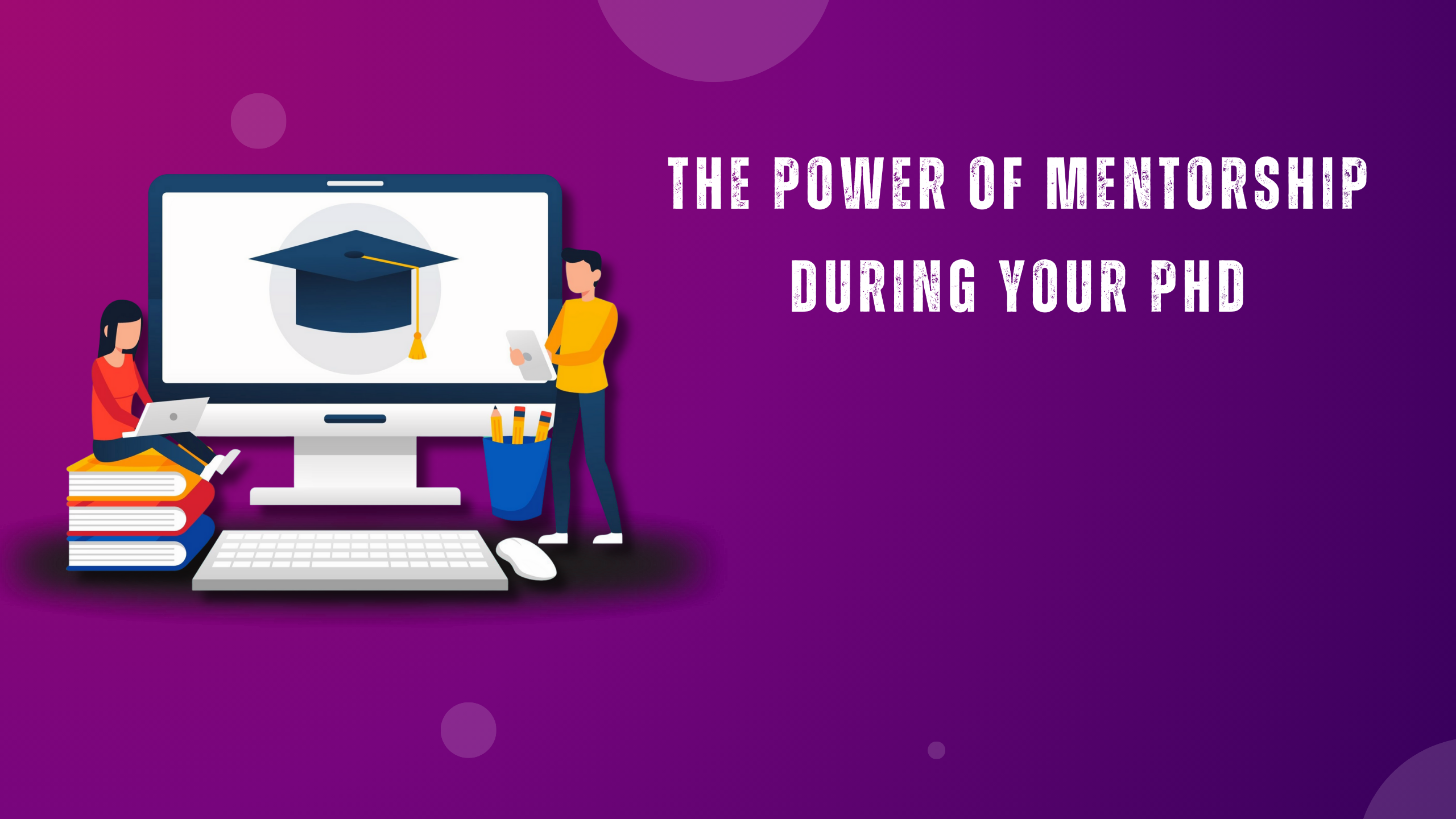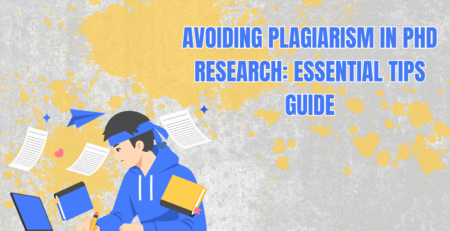The Power of Mentorship During Your PhD
Kenfra Research - Shallo2025-05-15T17:26:49+05:30Pursuing a PhD is one of the most intellectually challenging journeys a student can undertake. It’s a marathon of research, analysis, writing, and critical thinking. But amidst the complexity, one factor consistently stands out as a key to success: mentorship during your PhD. A good mentor not only guides your academic progress but also supports your emotional well-being and professional development. In this blog, we’ll explore why mentorship during your PhD is so important, how to find the right mentor, and how to maximize this crucial relationship.

Why Mentorship Matters in a PhD Program
- Academic Guidance
A PhD is largely self-directed, but that doesn’t mean you should navigate it alone. An experienced mentor provides direction in:
- Refining your research topic
- Developing a feasible methodology
- Locating relevant literature
- Reviewing drafts and offering constructive feedback
Having someone who has walked this path before makes the academic load more manageable and less daunting.
- Emotional and Moral Support
PhD students often struggle with imposter syndrome, stress, and burnout. A mentor can serve as a sounding board when challenges arise, helping you build resilience and stay motivated. Knowing there’s someone in your corner can significantly improve your mental health and emotional well-being during this intense academic journey.
- Professional Development
A mentor doesn’t just shape your thesis—they shape your career path. They may:
- Help you publish in reputed journals like Scopus, SCI, or Springer
- Guide you in presenting at international conferences
- Introduce you to academic networks and funding opportunities
Offer career advice, whether you’re headed for academia or industry
Characteristics of a Good PhD Mentor
Not every supervisor becomes a mentor, and not every mentor must be your supervisor. A good mentor ideally possesses the following traits:
- Accessible and supportive
- Expert in your research area
- Willing to invest time in your growth
- Offers constructive criticism and honest feedback
- Encourages your independence and originality
Some students have multiple mentors—one for research, another for career advice, and another for emotional support. Building a mentorship network can be very effective.
How to Find the Right PhD Mentor
- Start With Your Supervisor
Often, your primary mentor will be your supervisor. Before starting your PhD, research potential supervisors by:
- Reading their recent publications
- Understanding their research interests
- Contacting current or former students for feedback
- Seek External Mentors
Don’t limit yourself to one mentor. Other PhD holders, postdocs, or even professionals in your field can serve as mentors. Reach out through:
- LinkedIn and academic networking platforms
- Conferences and workshops
- Research collaborations
- Utilize Institutional Resources
Many universities offer structured mentoring programs. These match you with senior researchers or faculty members who provide guidance throughout your studies.
How to Make the Most of Your Mentorship
Having a mentor is only the beginning. Here’s how to nurture and maximize the relationship:
- Communicate Effectively
- Schedule regular meetings
- Come prepared with questions or updates
- Be clear about your goals and concerns
- Be Open to Feedback
A mentor’s feedback may sometimes be critical. Embrace it with an open mind and use it to improve your work.
- Take Initiative
Don’t expect your mentor to drive everything. Show commitment by making progress independently, being punctual, and demonstrating a willingness to learn.
- Show Appreciation
Mentorship is often unpaid and time-consuming. A simple thank-you note, acknowledgment in your thesis, or public appreciation can go a long way in strengthening the relationship.
Common Challenges in PhD Mentorship (and How to Solve Them)
- Mismatched Expectations
Sometimes, mentors and mentees have differing expectations. Address this early on by setting clear boundaries and responsibilities.
Solution: Draft a mentorship agreement outlining frequency of meetings, feedback timelines, and goals.
- Communication Gaps
Not all mentors are responsive. If your mentor is hard to reach or doesn’t engage with your work, it can stall your progress.
Solution: Politely raise the issue and suggest more structured communication. If unresolved, consider seeking additional mentorship.
- Conflicting Advice
When you have multiple mentors, their advice might conflict.
Solution: Weigh the pros and cons of each recommendation. Discuss the conflicts openly and trust your judgment as a scholar.
Success Stories: How Mentorship Changed PhD Journeys
Many successful PhD scholars attribute their success to strong mentorship. For example:
- A researcher at Oxford found her thesis direction and funding opportunity through a mentor’s network.
- A PhD candidate in India was able to publish in a high-impact Scopus journal with guidance from a dedicated research mentor.
- At Kenfra, scholars regularly benefit from hands-on mentorship in topic selection, research design, and publication support.
These stories highlight the real-world impact of meaningful mentorship.
The Role of Institutions and Organizations
Organizations like Kenfra recognize the vital role mentorship plays in PhD success. They provide:
- One-on-one mentoring with domain experts
- Research workshops and webinars
- Personalized guidance from topic selection to thesis submission
- Support with plagiarism checking, journal submission, and review process navigation
Such structured support can supplement academic mentorship and ensure a smooth PhD journey.
Conclusion: Mentorship Is a Superpower During Your PhD
The path to a successful PhD is paved with curiosity, dedication, and—most importantly—mentorship during your PhD. A good mentor acts as a compass, steering you through academic hurdles and helping you grow both professionally and personally. Whether you’re just starting or already midway through your PhD, it’s never too late to seek out mentorship during your PhD and invest in that relationship. If you’re feeling lost in your PhD journey, remember this: you don’t have to do it alone. Find a mentor, ask for support, and watch how your path unfolds with greater clarity and confidence.
Kenfra Research understands the challenges faced by PhD scholars and offers tailored solutions to support your academic goals. From topic selection to advanced plagiarism checking.







Leave a Reply